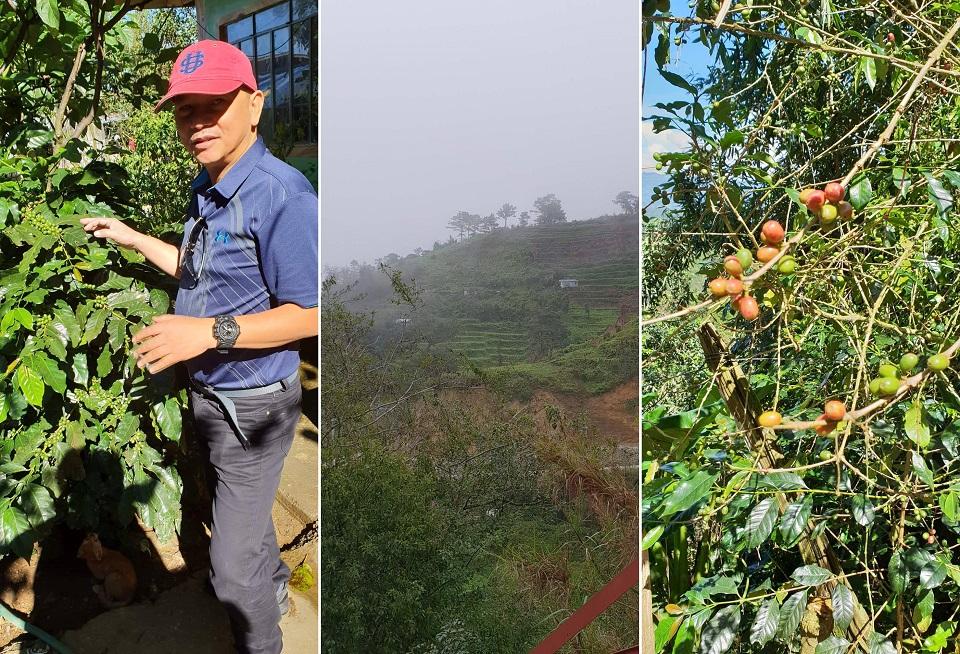Harvest season nears, but Benguet coffee farmers worry about Ompong’s effects

About P5.3 million worth of coffee trees were damaged in Atok town, Benguet province when Typhoon Ompong hit northern Luzon last month, a local cooperative has reported.
The strongest typhoon in the country this year swept through the region, causing landslides in various areas along the Cordillera Mountain Range, where the trees are mostly planted along mountainsides and on steep slopes.
The estimate cost of damage is equivalent to at least 20,114 coffee trees owned or maintained by the 249 members of the Atok Arabica Coffee Growers Marketing Cooperative (ACOGMAC).
"The damage assessment was prepared by the co-op themselves and are all based on estimates," Peace and Equity Foundation (PEF) senior area officer Ricardo DG Soto Jr. told GMA News Online.
Soto, who oversees a joint project between the foundation and the cooperative, said that the harvest will be on schedule, but he could not give an estimate of the typhoon's impact on the expected income.
"Some farms were damaged by landslides but I was not provided details. There were landslides along the road we passed through going to Kilometer 30 with some reports said up to Kilometer 40," Soto said.
The harvest season for coffee beans is between November and February. On average, during the harvest season, the cooperative are able to pick from 700 kilos to 800 kilos coffee cherries. These cherries are the sorted, depulped, roasted, ground, then packed.
ACOGMAC regularly produces around 500 pouches pf ground coffee a month. These are sold in Baguio and Manila and cost between P150 to P160 per pouch.
Soto said that PEF will be extending assistance to the coffee farmers even as the process of assessing the damage continues, with the foundation already receiving requests for fertilizer and piglets.
"Parang the idea is mag-alaga ng baboy habang nagpa-farm rehab for additional income," he said.
Coffee land
Benguet is the main source of vegetables in Luzon. But the elevation and quality of soil is ideal for coffee farming, particularly the Arabica variety.
Towns that grow Arabica coffee beans stretch from La Trinidad to Bokod and Kapangan.
In the town of Atok, it is the farmers' main source of income.
Alongside the coffee trees, the farmers plant sayote that they sell to augment their income. Sayote, however, are scarce because of the persistent rains in the area.
In a report issued on Sept. 17, the National Disaster Risk Reduction and Management Council (NDRRMC) Ompong said that 147,540 families were affected in 2,738 barangays, 433 cities and municipalities, and 31 provinces in Regions NCR, I, II, III, CALABARZON, MIMAROPA, and CAR.
The damage reached a total of P26.7 billion, close to that of Super Typhoon Yolanda in 2013, according to Agricultural Secretary Emmanuel Piñol.
“This is the highest damage to agriculture since Yolanda. In Yolanda, we have P35 billion,” the Cabinet official noted. — BM, GMA News




